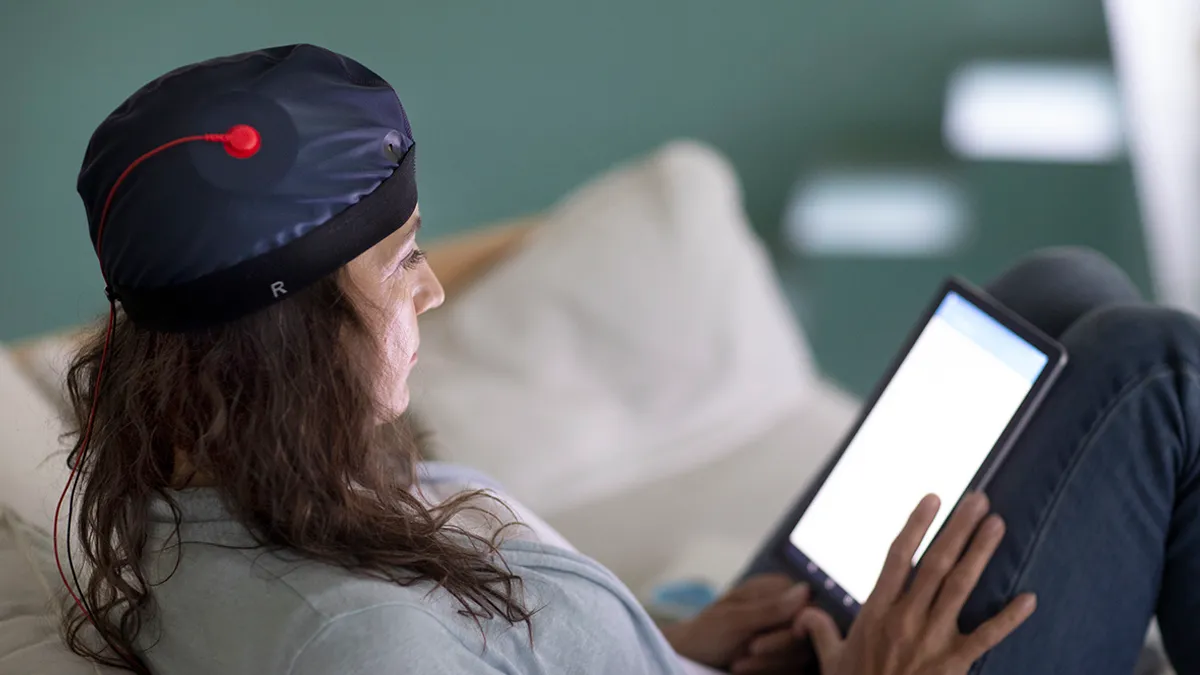Dive Brief:
- Sooma Medical has received U.S. Food and Drug Administration breakthrough designation for its neuromodulation depression therapy.
- Treatment with the portable, patient-administered transcranial direct current stimulation (tDCS) device consists of daily 30-minute sessions for at least three weeks. By delivering a mild current to stimulate parts of the brain, Sooma hopes to improve depressive symptoms.
- A study in the European Union, where the device is on the market, found more than half of patients have a complete clinical response and tolerability to the treatment is good. The single-arm study was funded by Sooma.
Dive Insight:
The idea of using an electric current to treat depression dates back decades. Electroconvulsive therapy tries to tackle the condition by delivering short bursts of high current to cause a seizure. In parallel, other researchers have assessed the effect of the milder tDCS approach. Early signs of efficacy were seen in the 1960s but interest in the approach faded as controlled trials failed to replicate the effects.
Changes to the method have driven an uptick in interest over the past 20 years, resulting in evidence that using scalp electrodes to deliver a relatively weak direct current to the cerebral cortex has benefits.
Sooma is building a business on the idea. The Helsinki-based medtech has developed a head cap that the patient wears to eliminate the need for a technician or nurse to measure the electrode locations. When the hand-held stimulation device is activated, it sends a current through the electrodes in the cap and adjusts the level based on the resistance provided by the hair and skin.
The device has applications in several indications — the first sham-controlled trial looked at tinnitus — but the breakthrough designation is limited to depression. Earlier this year, researchers linked the Sooma device to a reduction in symptoms in patients with major depressive disorder in a real-world study. The study lacked a control group.
Other companies are targeting the same opportunity. In recent years, Flow Neuroscience and Soterix Medical have initiated clinical trials of rival tDCS devices in patients with major depressive disorder. Sooma has yet to publicly set a target date for bringing its device to the U.S. market.










